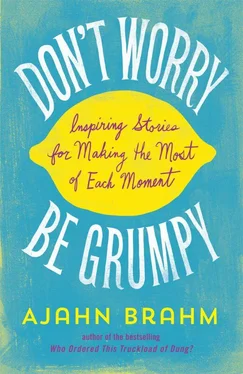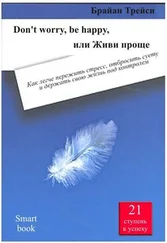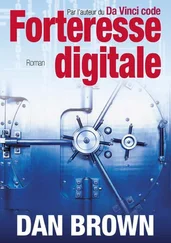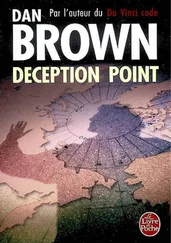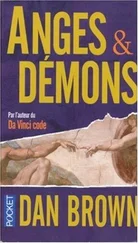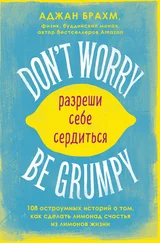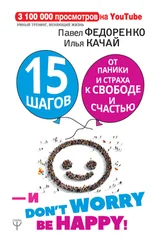3. Fortunate next life . The best benefit is the last. If grandma expires in an aircraft explosion at thirty thousand feet, she passes away so close to heaven that it is fairly easy for her to go the rest of the way.
These are the reasons I’m not at all afraid of flying. It’s another example of overcoming anxiety with positive thinking.
At the end of my lecture in Oslo, a young woman I had never seen before asked me a question on how one should make important decisions in life.
In order to ground her question in reality, I replied, “Well, suppose someone were trying to decide whether to marry her boyfriend?”
The poor girl blushed bright red, held her head in her hands, and turned in extreme embarrassment to her boyfriend sitting next to her! The audience didn’t help by their bursting into laughter.
After apologizing, I introduced an old method for making decisions with an unexpected new meaning: Toss a coin! Heads I marry him. Tails I don’t.
The new meaning, which I had only heard of recently, comes from paying close attention to your emotional reaction at the result.
Suppose it comes up heads, meaning, “I marry him.” Do you react with a “Yeah!” and grin happily or with “Hmm! Maybe I’ll try two out of three” and frown with disappointment? The reaction tells you very clearly what you really want to do. Whatever that is, you follow it.
Tossing a coin is simply a very effective way of finding out what your heart is telling you.
We love our pets very much. So one of the hardest decisions a pet owner will one day have to make comes when the veterinarian asks for approval to euthanize a sick pet.
Consenting to killing a well-loved pet seems heartless, and for a Buddhist, it breaks a core moral precept. Yet preventing the vet from ending your pet’s suffering appears even more cruel. How do we solve this moral dilemma?
Easy. Ask the dog!
Judy took her cancer-stricken dog to the vet yet again. The doctor said that there was nothing more he could do except to give the suffering dog the final needle. Judy asked for a few moments alone with her dear little dog. Many times she had heard me give the advice to “ask the dog.” So she cradled her cherished companion in her arms, looked deep into her eyes, and asked, “Do you want to die now? Have you had enough of this cancer? Or would you like to continue on a little longer?”
When you have lived with a pet for a long time and formed a loving relationship, you will know what the pet wants. Judy felt very strongly that her trusting little dog did not want her life ended yet. So she told the vet “no.”
The vet became angry. “You Buddhists are so cruel and stupid!” But there was nothing the vet could do. Judy took her dog home.
A few months later, Judy took the same little dog back to visit the vet. It had made a full recovery all on its own. Even cancers in humans vanish unexpectedly sometimes. The vet was amazed and, after checking the dog thoroughly to confirm it really was in good health, said, “You Buddhists are so compassionate and wise!”
It is not our duty to decide on the life or death of another, not even of an animal. Our role is to ask our pet. Any loving owner will know the answer once it has been asked. Then we convey that message to the vet. It is your dog’s decision, or your cat’s, not yours. They know.
I have been living in Perth as a monk since 1983. Over those years, I have gained the trust and respect of the local Buddhist families to the point where I am regarded as a sort of honorary grandpa to many young men and women. They have grown up coming to my temple and feel comfortable sharing secrets with me that they would never tell their parents!
Such a one was the distressed young doctor who came to see me. He had recently begun work as an intern in one of the big hospitals in Perth. The previous day he had lost his first patient in tragic circumstances. A young female patient of his had died. He had to tell her inconsolable husband that his young wife was dead and that his two small kids have no mum any more. The new doctor felt so guilty that he had failed that young family.
Of course, he was not to blame. He had done everything for his patient that was medically possible. The reason why he felt he had failed was due to something else, and that is what I spoke to him about.
“If you believe that your duty as a doctor is to cure your patient, then you are going to suffer this same failure again and again. During your career, many of your patients will die. But if you accept that your main duty is to care for your patients, then you never need to fail. Even though you may not be able to cure them, you will always be able to care for them.”
As he was an intelligent young man, he understood immediately and soon became a much better doctor. His main goal became to care for his patients. If his patients were cured, that was a wonderful bonus, but if they died, then they passed away in the warmth of being cared for.
Many of the appalling medical interventions that health professionals inflict on their patients, desperately trying to keep them alive when death is inevitable, occur because our society values curing above caring. Not only would many people’s last moments be more comfortable and peaceful if we emphasized caring more than curing, I think that more patients would be cured as well!
A senior surgeon in a prestigious American hospital examined the referred woman’s medical record. Her cancer was advanced, and every other hospital in the region had given up on her. Any treatment would be complex, expensive, and there was only a small chance that she would survive. Having checked her details, and after making a few more inquiries, he took on the difficult case.
His fellow doctors were surprised at the amount of resources he was willing to commit to the treatment of this woman. He called in many favors in order to assemble top specialists from other parts of the country and dedicated so much of his limited time and energy to helping this one patient.
The doctor’s extraordinary efforts paid off. At the end of many months, he could tell her that the cancer was in full remission and that she could expect to live many more happy years. She was overjoyed.
A few days later, she received the bill from the hospital in the mail. She opened the envelope with dread, expecting to see a fee for many hundreds of thousands of dollars. Instead, she saw in her doctor’s own handwriting:
Paid twenty-five years ago with a glass of milk and two cookies.
Twenty-five years previously, that doctor had been a poor medical student, trying to pay his way through college doing odd jobs. One such job was as a door-to-door salesman. Late one hot afternoon, having sold nothing all day, he knocked on yet another door and a woman opened it. She listened to his worn sales pitch and declined to buy anything. But then she asked the tired looking young man, “Have you had anything to eat yet?”
“Not since breakfast, ma’am.”
“Then just you wait here,” she said, and she quickly returned with a glass of milk and two cookies for the exhausted young med student.
Twenty-five years later, that student was a senior surgeon at a prestigious hospital. When he examined the woman’s medical record, her name rang a bell. A few phone calls confirmed that she was indeed the kind lady who had given him the welcome snack.
Out of gratitude for a little act of kindness many years before, never forgotten, not only did he go the extra distance to make sure she survived the cancer, but he also paid her bill.
Читать дальше
